Benefits Of Raisins: 25 Ways They Boost Health, Skin, And Hair
From aiding digestion to improving dental health, dried grapes can do wonders for you.
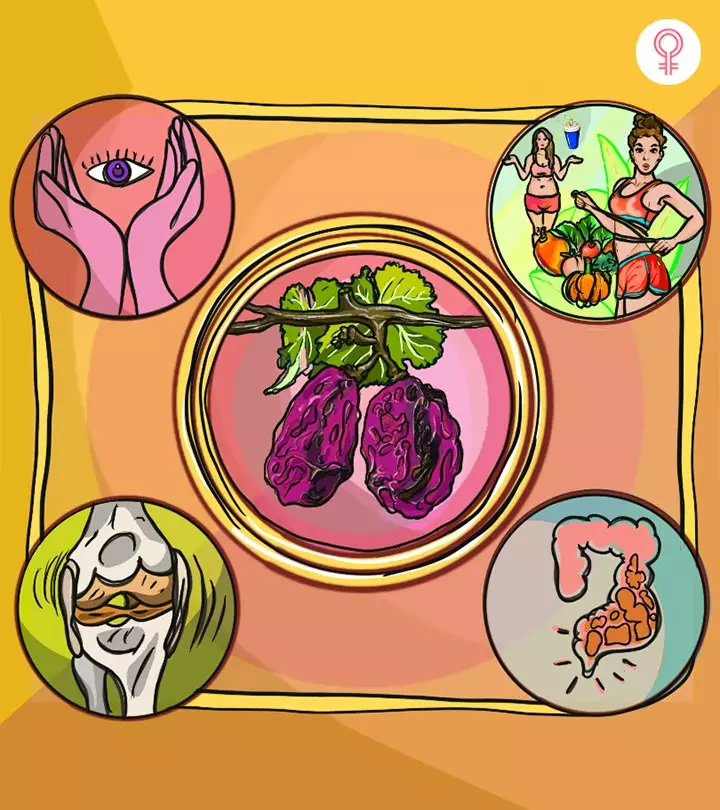
Image: StyleCraze Design Team
Raisins are dried grapes and are healthier alternatives to sugary treats and refined sugar sweets. They are a popular snack and versatile ingredient in sweet and savory dishes. Packed with essential nutrients, raisins provide a good source of dietary fiber, vitamins, and minerals like iron, potassium, and calcium. This article discusses the benefits of raisins and how to use them for maximum benefits. So, let’s take a look at why raisins are good for you.
 Know Your Ingredient: Raisins
Know Your Ingredient: RaisinsWhat Is It?
It is the dried form of a grape.
What Are Its Benefits?
May aid in weight loss, enhance skin health, and boost hair growth.
Who Can Consume It?
It is safe to consume in moderation for all adults.
How Often?
It can be consumed daily in moderation.
Caution
Consume it in moderation as the dense nutrient content of raisins can cause side effects such as unwanted weight gain.
Scroll down and check out the health benefits of raisins:
In This Article
1. Help In Digestion
Having a few raisins every day is good for your stomach.
Raisin is a fiber-rich food. Fiber starts to swell in the presence of water and gives a laxative effect to the stomach and helps in relieving constipation. Also, daily intake of raisins keeps the bowel movement regular and the fibers help to keep toxins and waste products out of the system (1).
Key Takeaways
- Raisins are a good source of energy and vitamins and minerals that you can consume daily.
- Consumption of raisins may support cardiovascular health.
- It may help reduce acidity as raisins have a high potassium content and magnesium.
- They may help treat infections and prevent cancer.
- Raisins may also improve bone health.
2. Reduce Acidity
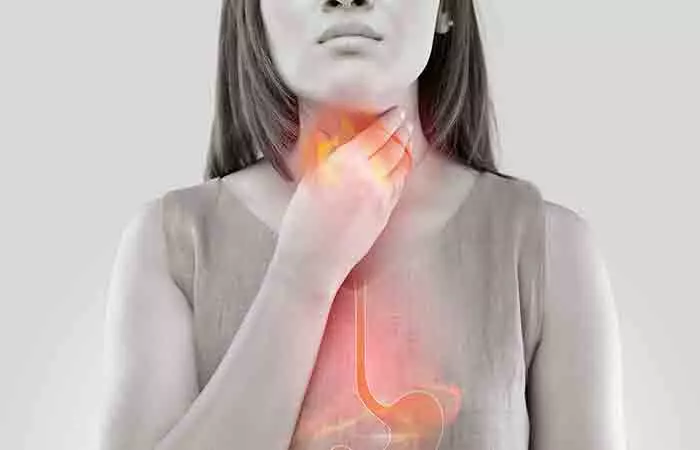
Raisins contain potassium and magnesium in good levels. These help reduce acidity and help remove the toxins from the system, preventing diseases like arthritisi Inflammation of one or more joints in the body that causes pain and stiffness and worsens in old age. , gouti A condition that causes persistent inflammation and affects several joints, especially those in the hands and feet. , kidney stones and heart diseases (2).

3. Help Against Anaemia
Raisins have a good amount of iron content and B-Complex vitamins in them which help to treat Anemiai A health condition in which the body does not produce enough red blood cells to carry sufficient oxygen. (3). The copper content in raisins also helps in the production of red blood cells.
A study showed that anemia is common in older individuals, especially those over the age of 85, affecting more than 20% of them. In nursing homes, 50-60% of people have anemia. In the elderly, about one-third of anemia cases are caused by nutritional deficiencies, such as iron, folate, or vitamin B12 deficiency. Mild iron-deficiency anemia is commonly observed in women of childbearing age due to inadequate iron intake in their diets and monthly blood loss during menstrual cycles.
4. Help Prevent Cancer
An antioxidant named catechins present in raisins helps protect the body against the free radical activityi The process through which cells are damaged by unstable chemicals leading to aging and diseases like cancer. that can cause tumors and colon cancer (4).
5. Help Treat Infections
Raisins contain polyphenolic phytonutrients, which are well-known as anti-inflammatory antioxidants (5). They exhibit antibacterial properties that help lower the risk of fever and kill the bacteria. Thus, having a few raisins a day can keep you safe from cold and other such infections.
 Trivia
Trivia6. Help Reduce Sexual Weakness
Consumption of raisins is also good for your sex life. Raisins contain an amino acid named Arginine which increases libidoi The natural desire for sexual activity that can be impacted by hormonal, psychological, and physical factors. and induces arousal. It is good for men and is used to treat erectile dysfunction (6). Also, the added energy boost of the raisins helps your conjugal life. Remember the tradition in India where the new bride and groom are given a glass of milk boiled with raisins and saffron? This is an age-old practice that validates the effectiveness of raisins.
7. For The Eyes
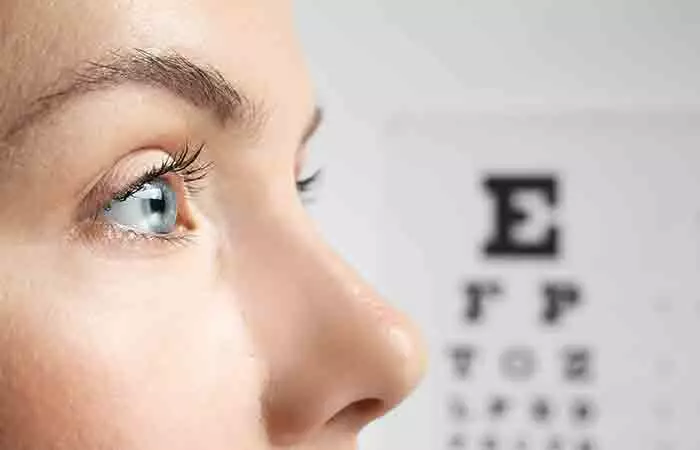
Raisins are found to be rich in polyphenolic phytonutrients which are antioxidants that help in keeping your eyesight strong. The antioxidants in raisins help improve eye health by reducing the free radical action that weakens the vision and causes macular degenerationi An eye disease that causes progressive vision loss by destroying the macula, the center region of the retina. as well as cataracts. Also, raisins have vitamin A, beta-carotene, and carotenoidsi Plant-based natural pigments that act as antioxidants and are essential for immunity and eye health. , and they are super good for the eyes (7).
8. For Your Mouth And Dental Care
Raisins contain oleanolic acid which is one of the phytochemicalsi Plant-based natural compounds with anti-inflammatory and antioxidant properties that provide several health benefits. which is essential to keep your teeth safe from decay, cavities as well as brittle teeth. Raisins prevent the growth of bacteria in the mouth to keep the teeth in good shape. As they contain calcium in good quantities, they also prevent the teeth from peeling away or breakage. The boron present in raisins is good for keeping germ build-up in the mouth low (8).
9. For Your Weight Management

If you are desperately trying to gain weight, then these raisins are your best friends. Raisins are rich in fructose and glucose and give you loads of energy. They will help you gain weight without accumulating bad cholesterol (9).
10. For Good Bones
Raisins also contain good amounts of calcium which is good for bone health (10) (11) (12). They help you from arthritis and gout.
11. For Improved Brain Function
Raisins are a rich source of powerful antioxidants such as polyphenols, tannins, and phenolic acids. An animal study found that consumption of a diet rich in black raisins increased the level of antioxidants in the body, which significantly improved spatial memory and cognitive and motor functions in aging rats (13).
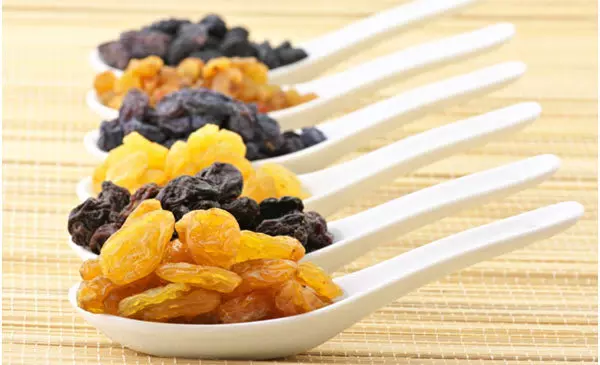
12. Support Heart Health
Regular consumption of raisins may help lower the risk of heart disease, as their potassium content helps regulate blood pressure and supports overall heart health. Their fiber content aids in managing cholesterol by lowering LDL (bad) cholesterol and preventing plaque accumulation in the arteries. In addition, the polyphenols in raisins, which are strong antioxidants, fight inflammation and oxidative stress, both of which are linked to cardiovascular problems (12).
Additionally, the vitamin C content in raisins helps boost immune system support (14), (15). Let us take a look at the benefits of eating raisins for your skin.
Raisins For The Skin
Raisins are a nutrient-dense food that gives high energy and contains low fat. These improve skin health and keep it beautiful. Following are some benefits of raisins for the skin:
- Unlike topical creams, raisins protect the skin from inside by guarding the cells from any damage. They are packed with phenol, an antioxidant that prevents the free radicals from damaging the skin cells, collagen, and elastin. This helps delay the appearance of the signs of aging (16) like wrinkles, fine lines and blemishes.
- The antioxidants in raisins speed up the skin repair system, plump out the skin and prevent it from damage. They also rejuvenate the skin cells and prevent sagging of the skin.
- Raisins contain resveratrol, a substance that is highly beneficial for maintaining the health of the skin (17). It removes the toxic and black cells from the blood to purify the blood. It also helps improve the production of red cells in the body. This, in turn, makes the skin clear, shiny and nourished.
- Blood toxicity, also known as acidosis, is a condition that increases the acidity in the body. This can lead to skin complications like boils, pimples and psoriasisi A non-contagious autoimmune disorder in which skin cells accumulate and develop into scales and dry, itchy areas on the body. . The high potassium and magnesium content of raisins neutralizes the stomach acid. This helps treat acidosis and keeps the skin healthy and problem-free (12) (18) (19).
- Consumption of black raisins accelerates the functions of the liver to detoxify the body (20). This helps flush out the toxins from the body to get a clean and glowing skin. Black raisin benefits also include the prevention of premature graying and thinning of hair.
- Raisins also help to protect the skin against sun damage. The phytochemicals in them protect our skin cells from the damage caused by the exposure to the sun. The amino acids in raisins boost skin renewal and form a protective barrier against sun damage. This is useful to prevent skin cancer (21).
- The antioxidants in the raisins combat the free radicals in the body (22). This slows down the oxidation process and prevents the disintegration of the DNA of our skin.
- Raisins contain vitamins A and E that help stimulate the development of new cells in the skin’s outer layers. They improve the hydration of the skin to make it supple and younger looking (23).
Raisins For The Hair:
Raisins contain plenty of hair-friendly nutrients like vitamin B, iron, potassium, antioxidants, and zinc content, all of which are required for improving the condition of the hair (24), (25). Some of the benefits of raisins for the hair include the following:
- These tiny treats are packed with iron, a nutrient that is required for maintaining the health of the hair. A deficiency in iron can cause a dull and lifeless mane and severe hair loss. Iron improves the blood circulation in the body and stimulates the hair follicle cells. This makes the hair healthy and strong. So munch a handful of raisins daily to get your dose of iron (26).
- Raisins contain a large amount of vitamin C which facilitates the absorption of minerals and provides nourishment. This helps maintain the natural color of the hair.
- Consuming a handful of raisins daily will strengthen the blood vessels. This, in turn, will reduce flakiness, dandruff and itchiness of the scalp. The resveratrol present in raisins inhibits scalp inflammation and cell deaths to prevent hair loss(27). Raisins also fight hair loss caused by environmental damage.
- Consuming foods rich in antioxidants can prevent hair loss to a great extent. The antioxidants in raisins prevent hair damage by stimulating healthy hair follicles. They also promote healthy cells essential for hair growth.
- Raisins contain several essential nutrients that promote the health of the hair. Vitamin C in raisins maintains the follicle’s connective tissue, also known as collagen. This promotes hair growth. Vitamin E further strengthens the cell membranes and prevents free radicals from attacking the hair follicles.
These benefits can be attributed to raisin’s rich nutritional profile. Learn more about it below.
Nutrition Profile Of Raisins
A 100g of raisins contains the following nutrients (28):
| Nutrients | Amount |
| Calories | 22 KCal |
| Carbohydrates | 79.32 g |
| Dietary fiber | 4.5g |
| Natural Sugars | 65.18 g |
| Calcium | 62 mg |
| Magnesium | 1.79 mg |
| Phosphorus | 98 mg |
| Potassium | 744 mg |
| Zinc | 0.36 mg |
| Copper | 0.272 mg |
| Vitamin C | 2.3 mg |
| Thiamin | 0.106 mg |
| Riboflavin | 0.125 mg |
| Niacin | 0.766 mg |
| Vitamin B-6 | 0.174 mg |
| Iron | 1.79 mg |
| Vitamin K | 3.5 µg |
To reap the benefits of this nutritional ingredient, it is important to learn how to choose the best variety and store them properly. Find out more in the next section.
Selection And Storage
- Packed or canned raisins are available in the local grocery store throughout the year. Several brands and grades of raisins are available, so always buy raisins of good quality.
- Raisins are available in small serving-size boxes and large containers. Try to purchase raisins that are sold in transparent containers, or loose, so that you can check their quality. While buying packaged raisins, make sure that the container is properly sealed and is not tampered.
- Substandard and low quality raisins have thin flesh and very poor taste. Buy raisins that are plump in appearance and are not very shriveled.
- Avoid buying old stocks and those that have molds, excess moisture or are rotten as this will affect their appearance and edibility.
- Shake the box or container and avoid buying boxes that rattle loudly as this indicates that the raisins have dried out.
- Raisins are best consumed within six months from the date of purchase.
- Proper storage is very important for maintaining the freshness and the quality of raisins.
- Raisins are ideally kept in a cool and dry place. They stay fresh for more than two months if kept in an airtight container and will last even more if stored in a refrigerator.
- Refrigeration is recommended if you are preserving the raisins for later consumption. You can store them in the refrigerator for up to one year and in the freezer for up to two years. Prolonged cold storage may result in the crystallization of the sugar content of raisins.
- To prevent the crystallization, transfer the raisins from the container to an airtight storage bag and press out the air as much as possible. Seal the bag properly and place it in the refrigerator or the kitchen cabinet. This will prevent the raisins from crystallizing or turning stale. You can even soak them in warm water to dissolve their crystals.
Carrie, a blogger, shares a simple yet effective way to keep raisins fresh. Divide your raisins into four Ziplock baggies, removing the air, and store them in the original raisin box. She says “At this point (if sticky stuff weirds you out like it does moi) you might want to wash out the raisin box, since it will have sticky raisin residue on it. Then stuff in the four baggies of raisins. That way you only have to open 1/4 of the “box” of raisins at a time and all the remaining raisins will stay super fresh until you need them (i)”.
 Fun Fact
Fun FactUses Of Raisins
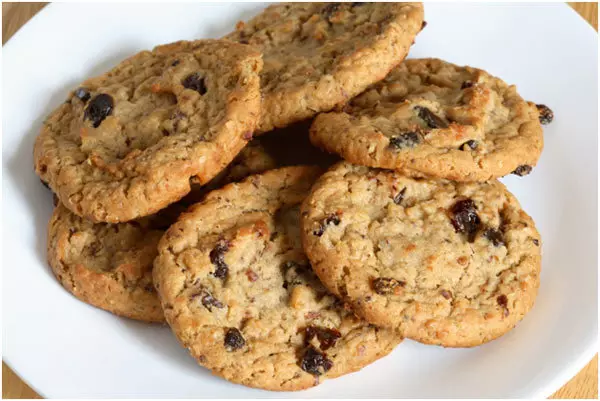
- Fresh and properly stored raisins do not require any special attention before eating or using them in a recipe.
- Raisins can be enjoyed alone or can be combined with other dry fruits like dates, almonds, apricots and prunes for a healthy snack.
- They taste best when taken with warm milk.
- You can add raisins to your breakfast cereals, homemade granola or sprinkle on a bowl of oatmeal.
- You can also keep them in your purse or bag for a healthy on-the-go snack.
- If the raisins have dried out, place them in a bowl filled with hot water for a few minutes. You can use this raisin-infused liquid for preparing a side dish. Use soaked raisin on top of a chicken dish or layer it with plain yogurt to make a dessert parfait. Their sweetness and texture makes them a great addition to poultry stuffing.
- Raisins are used extensively in salads and are added to curries in some cuisines.
- They go well with most of the baked foods and are a sought after item in the confectioneries. They are added in muffins, cookies, biscuits, pies, and cakes. They are also used in the preparation of jams, jellies and puddings. Commercially grown raisins are even treated with sulfur dioxides to extend their shelf life and prevent oxidation and bleaching of colors. This can cause adverse reactions, especially in people who suffer from asthma and are sulfite sensitive. So, consider buying organic raisins if you’re sulfite sensitive.
 Quick Tip
Quick TipSide Effects Of Raisins
Eva De Angelis, Dietitian Nutritionist, says, “Like most fruits and dried fruits, raisins are generally safe and healthy. They are high in fiber, antioxidants, and potassium, with a bit of protein. Yet, if you are watching your calorie intake, be aware of how many raisins you eat. They can quickly add up in terms of energy and sugar.”
Julianna Coughlin, MS, RD, LDN, notes, “They are a concentrated source of sugar.”
Eva continues, “While they are high in fiber, they contain more sugar than grapes due to dehydration, so people with diabetes or who struggle with blood sugar control should limit their intake. In fact, sugar accounts for nearly 70% of the weight of raisins. As a result, eating too many at once will cause blood sugar spikes. This is especially significant for people with diabetes, who should limit their raisin intake to no more than 30 grams per time.”
She adds, “I recommend taking no more than a small handful of raisin, about 30 grams or 1 oz. To help with portion control, I like to include raisins in my homemade mix trails with unsalted nuts or add them to porridge or yogurt.”
She further adds, “Another thing to keep in mind is that because raisins are so small, they may be unsafe foods for small children or people who have difficulty swallowing.”
Infographic: Most Important Benefits Of Raisins
Raisins are healthy and natural sugary treats rich in glucose and fructose that can substitute sweets. In addition, raisins are packed with many phytonutrients and antioxidants, making them very beneficial for hair, skin, and overall well-being.
Check out the infographic below to know about the most important benefits of raisins.
Some thing wrong with infographic shortcode. please verify shortcode syntax
Raisins, also known as dry grapes, are healthy and natural substitutes for sugary treats. They are a highly nutritious, low-fat, and low-calorie food with various health benefits. Their intake can help promote digestive health, reduce acidity, help treat anemia, aid in cancer prevention, and treat many bacterial infections. In addition, they also may delay the signs of aging, make your skin clear and shiny, and prevent hair loss. You can add them to your favorite recipes to reap their maximum benefits.
Frequently Asked Questions
Do raisins have Omega 3?
Julianna says, “No, omegas 3 and 6 are only found in foods that contain fats, raisins are fat-free.”
Which raisin is best black or yellow?
Eva says, “Both types are nourishing foods to include in our diet. I like to add either one to yogurt, salads, mix trails, or saute for a subtle sweet flavor.”
How many raisins should you eat in a day?
The recommended daily intake of raisins for adults is 1.5- 2 cups a day (19).
What is the best time to eat raisins?
The best time to eat raisins (soaked) is early morning, on an empty stomach.
Can I eat raisins without soaking?
You can eat raisins without soaking them. But soaking and consuming them will enable you to enjoy the raisins’ benefits to the fullest.
Illustration: Amazing Benefits Of Raisins You Should Definitely Know About
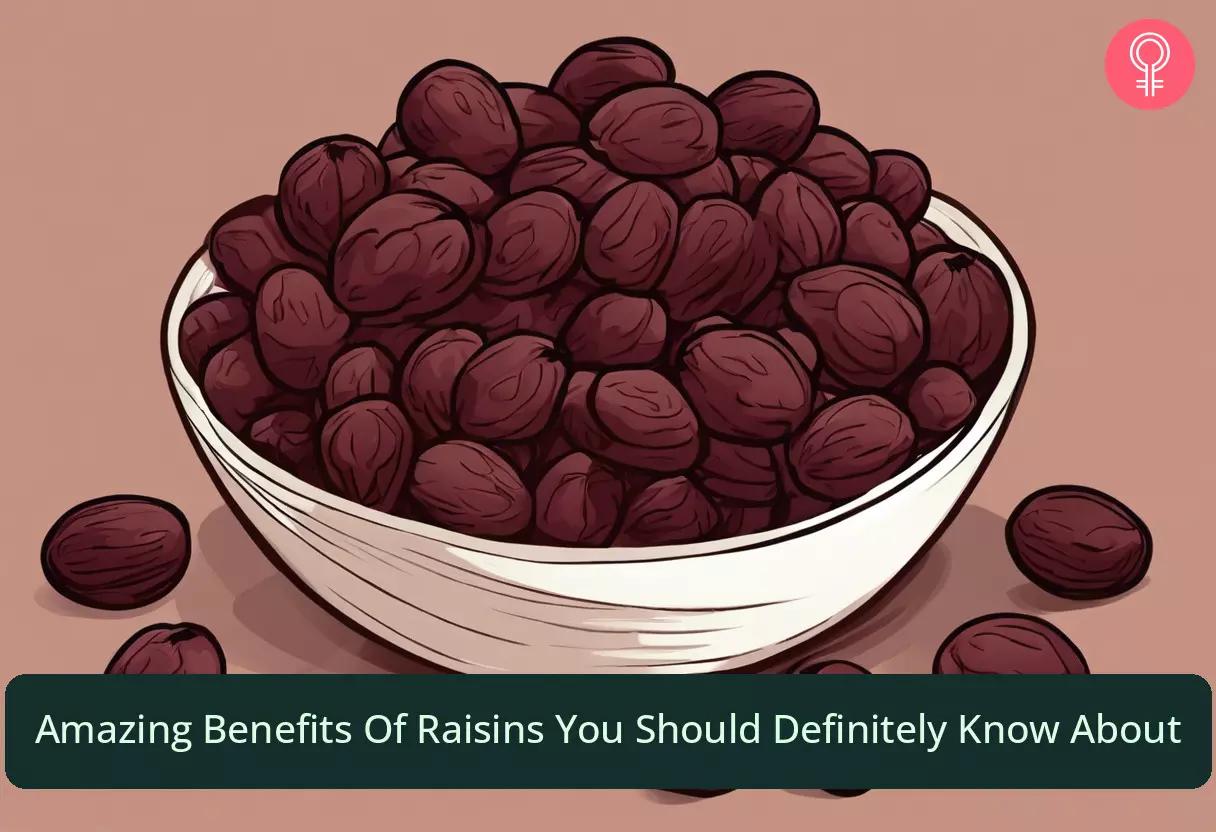
Image: Stable Diffusion/StyleCraze Design Team
Experience the delightful flavors and incredible health benefits of raisins. Indulge in this captivating video as it unveils the top 10 reasons why incorporating this dried fruit into your daily diet can enhance your overall well-being.
Personal Experience: Source
StyleCraze's articles are interwoven with authentic personal narratives that provide depth and resonance to our content. Below are the sources of the personal accounts referenced in this article.
i. How to keep a box of raisins freshhttps://gingerlemongirl.blogspot.com/2011/08/how-to-keep-box-of-raisins-fresh.html
References
Articles on StyleCraze are backed by verified information from peer-reviewed and academic research papers, reputed organizations, research institutions, and medical associations to ensure accuracy and relevance. Read our editorial policy to learn more.
- Dietary raisin intake has limited effect on gut microbiota composition in adult volunteers
https://www.ncbi.nlm.nih.gov/pmc/articles/PMC6404294/ - Changes in quality attributes of intermediate-moisture raisins during storage
https://pubmed.ncbi.nlm.nih.gov/18925480/ - Deficiency testing for iron vitamin B12 and folate
https://pubmed.ncbi.nlm.nih.gov/7603852/ - Chemopreventive properties of raisins originating from Greece in colon cancer cells
https://pubmed.ncbi.nlm.nih.gov/23211994/ - Antioxidant capacity and phenolic content of grapes sun-dried raisins and golden raisins and their effect on ex vivo serum antioxidant capacity
https://pubmed.ncbi.nlm.nih.gov/17880162/ - The Potential Role of Arginine Supplements on Erectile Dysfunction: A Systemic Review and Meta-Analysis
https://pubmed.ncbi.nlm.nih.gov/30770070/ - The Role of Vitamin A in Retinal Diseases
https://www.ncbi.nlm.nih.gov/pmc/articles/PMC8835581/ - Grape products and oral health
https://pubmed.ncbi.nlm.nih.gov/19640974/ - Raisin consumption by humans: effects on glycemia and insulinemia and cardiovascular risk factors
https://pubmed.ncbi.nlm.nih.gov/23789931/ - Calcium Intake in Bone Health: A Focus on Calcium-Rich Mineral Waters
https://www.ncbi.nlm.nih.gov/pmc/articles/PMC6316542/ - Importance of Dietary Phosphorus for Bone Metabolism and Healthy Aging
https://www.ncbi.nlm.nih.gov/pmc/articles/PMC7599912/ - Is Eating Raisins Healthy?
https://www.ncbi.nlm.nih.gov/pmc/articles/PMC7019280/ - Spatial Memory and Antioxidant Protective Effects of Raisin (Currant) in Aged Rats
https://www.ncbi.nlm.nih.gov/pmc/articles/PMC6195892/ - Vitamin C and Immune Function
https://www.ncbi.nlm.nih.gov/pmc/articles/PMC5707683/ - Exploring the Immune-Boosting Functions of Vitamins and Minerals as Nutritional Food Bioactive Compounds: A Comprehensive Review
https://www.ncbi.nlm.nih.gov/pmc/articles/PMC8779769/ - Polyphenols and Aging
https://www.ncbi.nlm.nih.gov/pmc/articles/PMC2896035/ - Resveratrol as an active ingredient for cosmetic and dermatological applications: a review
https://pubmed.ncbi.nlm.nih.gov/29737899/ - Acid-base and potassium homeostasis
https://pubmed.ncbi.nlm.nih.gov/23953803/ - Alkaline treatment for preventing acidosis in the rumen culture fermenting carbohydrates: An experimental study in vitro
https://www.ncbi.nlm.nih.gov/pmc/articles/PMC6702938/ - Raisins: A kitchen cabinet item can restores the liver function and structure
https://pubmed.ncbi.nlm.nih.gov/33612462/ - Anticancer and Cancer Chemopreventive Potential of Grape Seed Extract and Other Grape-Based Products
https://www.ncbi.nlm.nih.gov/pmc/articles/PMC2728696/ - Antioxidant properties of raisins (Vitis vinifera L.)
https://pubmed.ncbi.nlm.nih.gov/20041785/ - Vitamin E in dermatology
https://www.ncbi.nlm.nih.gov/pmc/articles/PMC4976416/ - An overview of the genetic aspects of hair loss and its connection with nutrition.
https://www.ncbi.nlm.nih.gov/pmc/articles/PMC9710406/ - The Therapeutic Effect and the Changed Serum Zinc Level after Zinc Supplementation in Alopecia Areata Patients Who Had a Low Serum Zinc Level
https://www.ncbi.nlm.nih.gov/pmc/articles/PMC2861201/ - The diagnosis and treatment of iron deficiency and its potential relationship to hair loss
https://pubmed.ncbi.nlm.nih.gov/16635664/ - Anti-Inflammatory Action and Mechanisms of Resveratrol
https://www.researchgate.net/publication/348257011_Anti-Inflammatory_Action_and_Mechanisms_of_Resveratrol - Raisins
https://fdc.nal.usda.gov/fdc-app.html#/food-details/1102640/nutrients
Read full bio of Dr. Geeta Dharmatti
Read full bio of Ravi Teja Tadimalla
Read full bio of Arshiya Syeda
Read full bio of Aparna Mallampalli





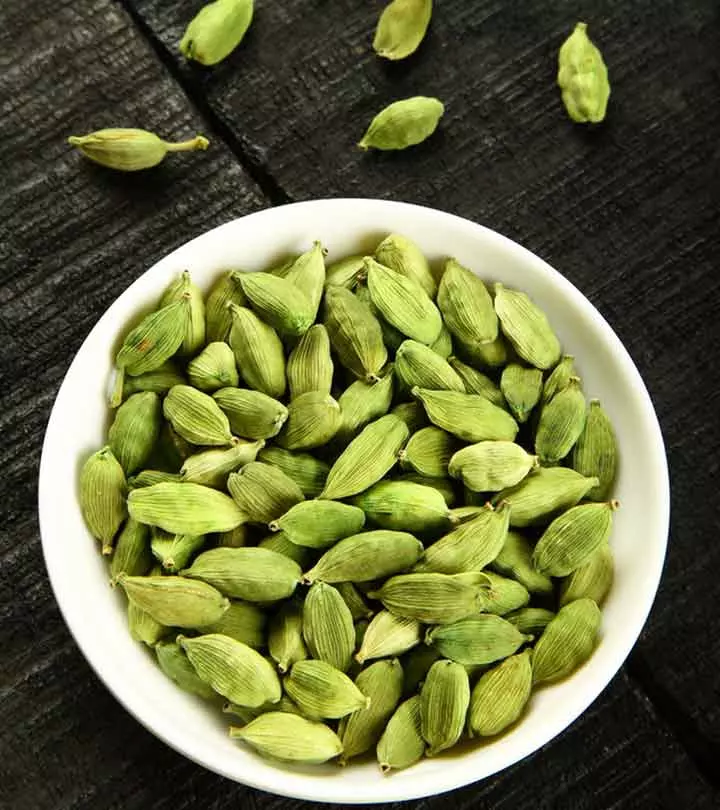
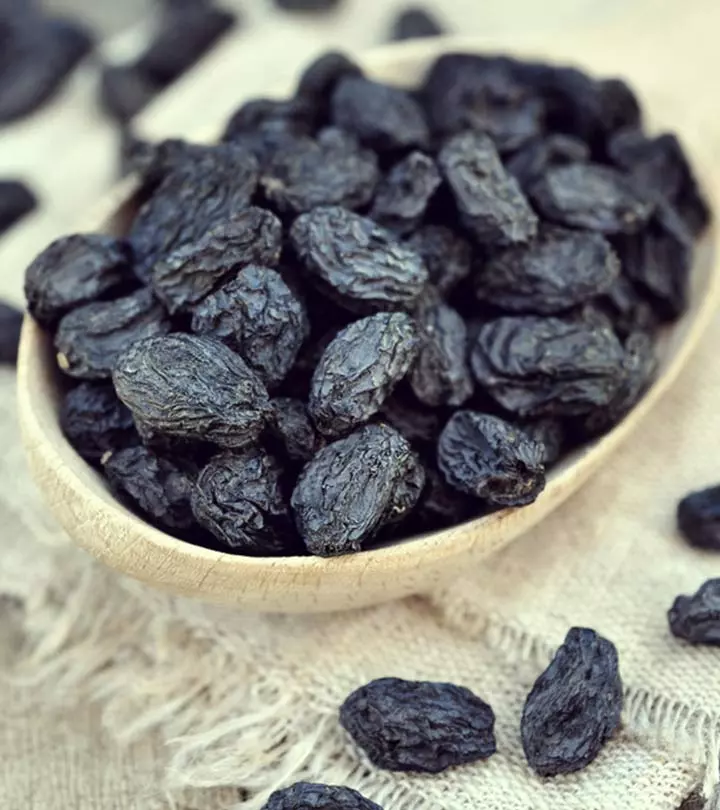
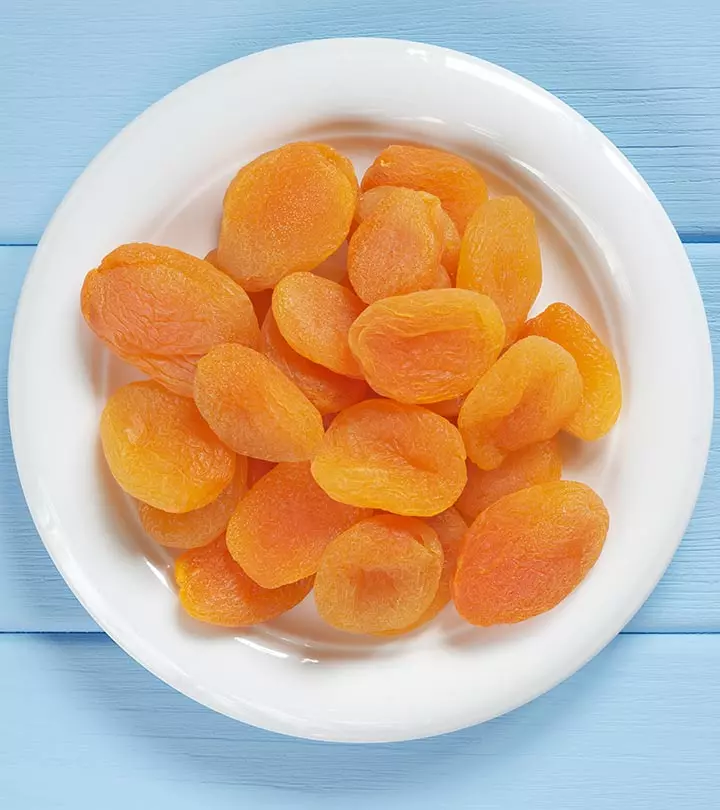
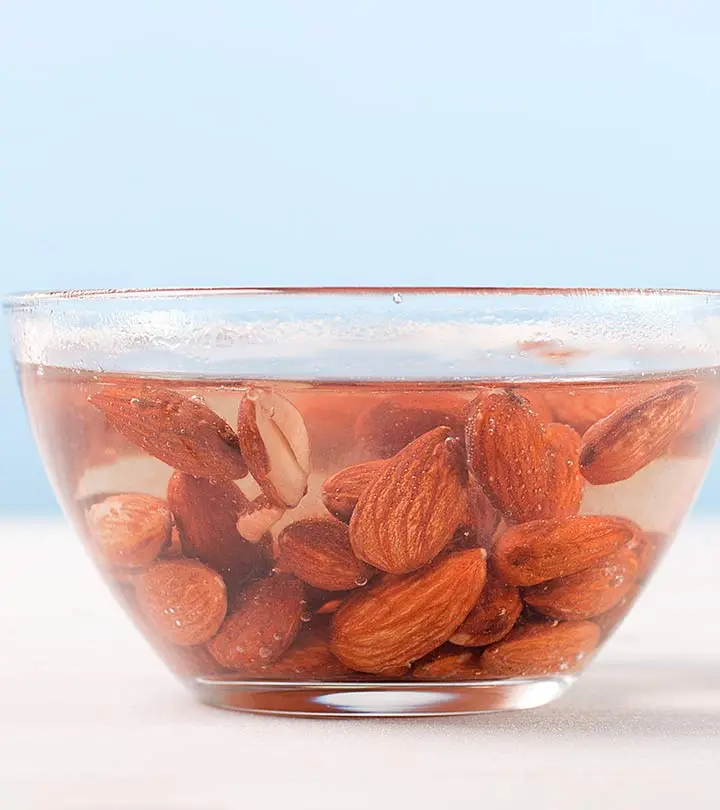
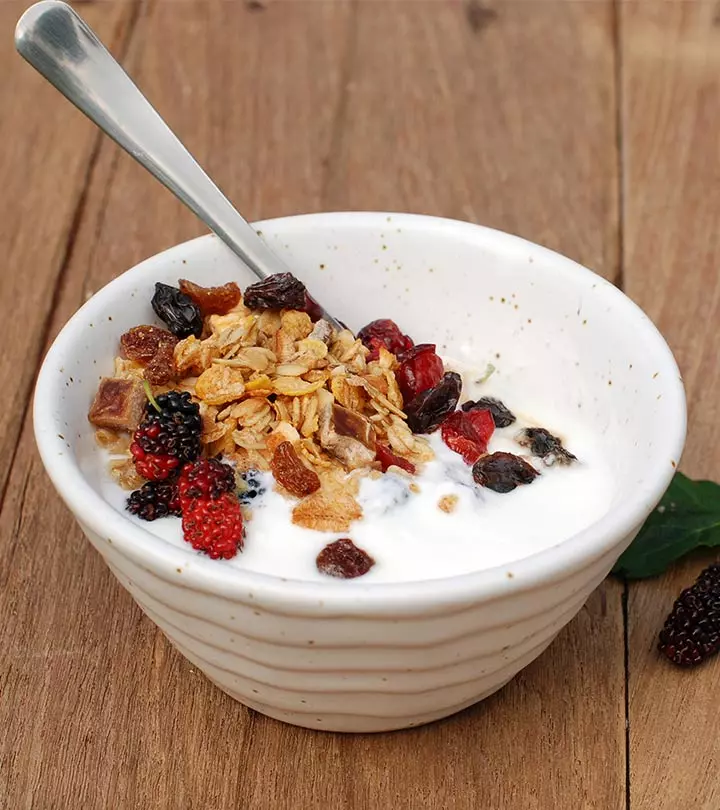
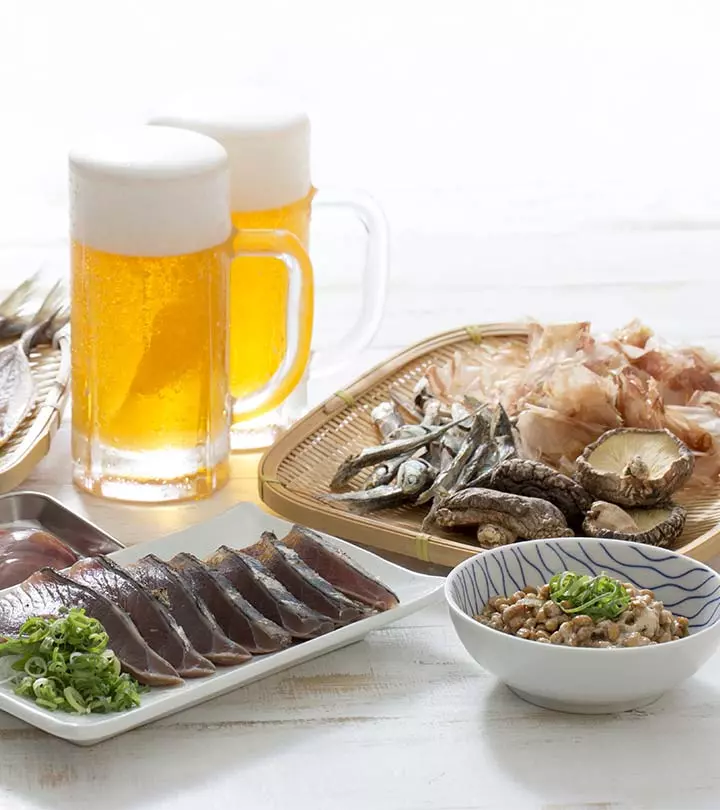
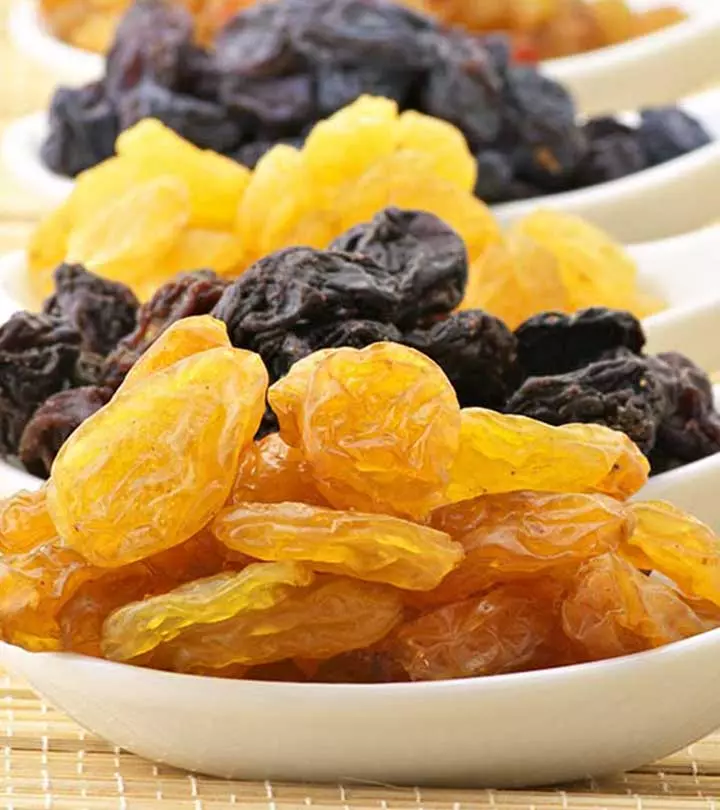
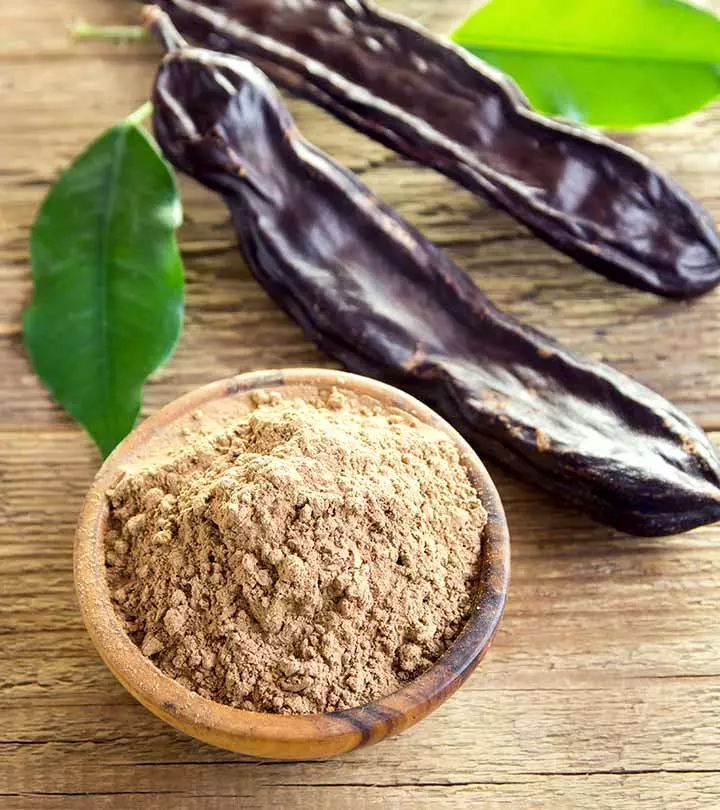
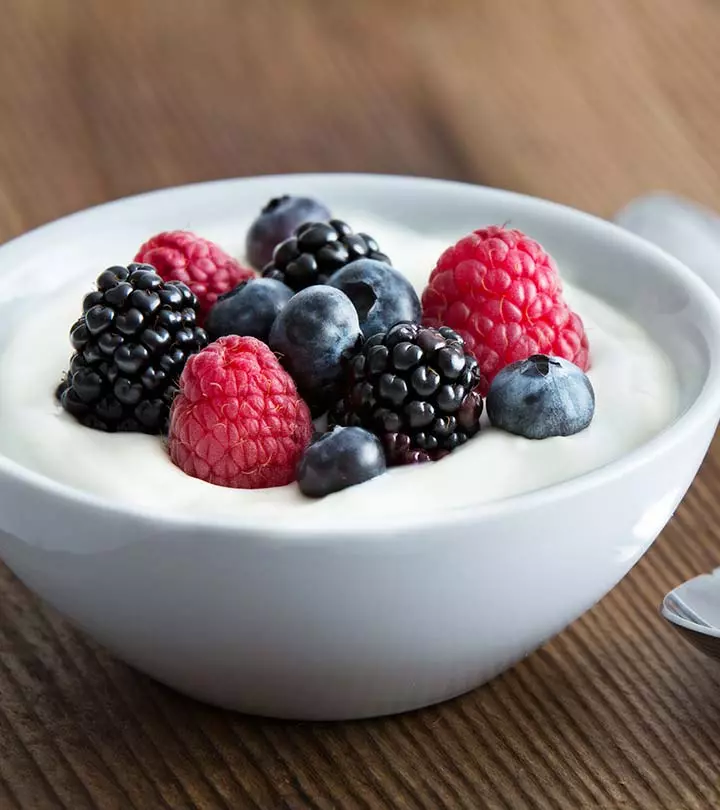
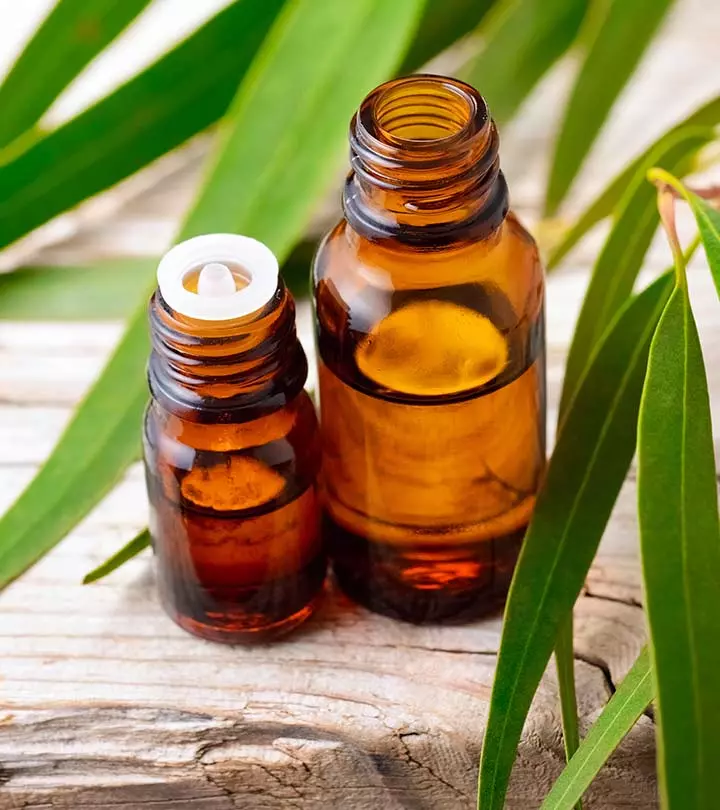
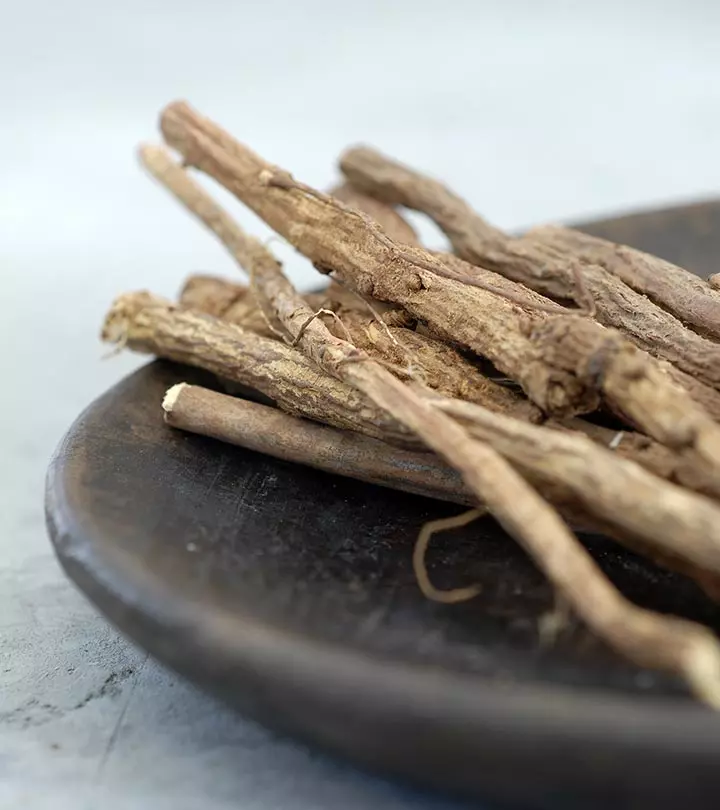


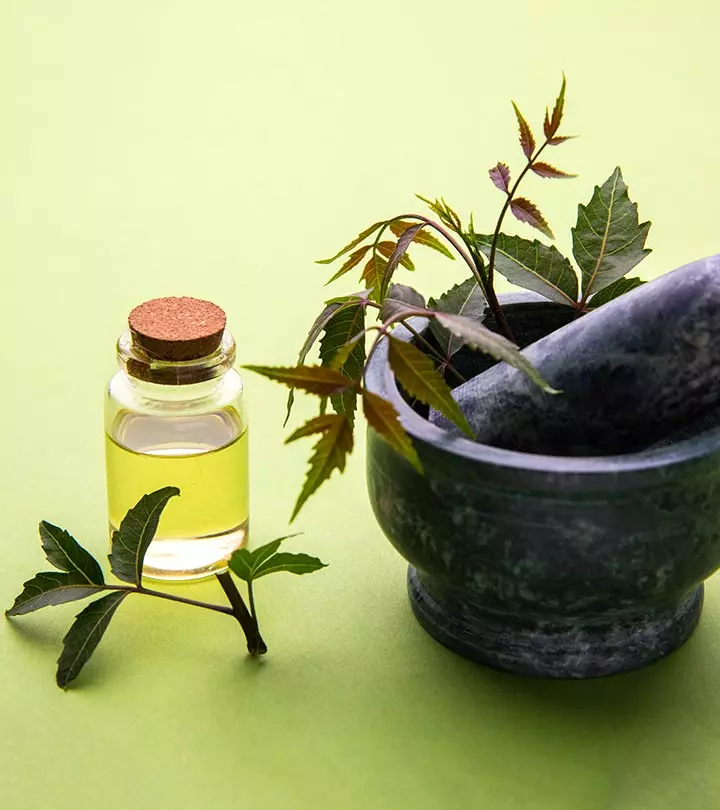


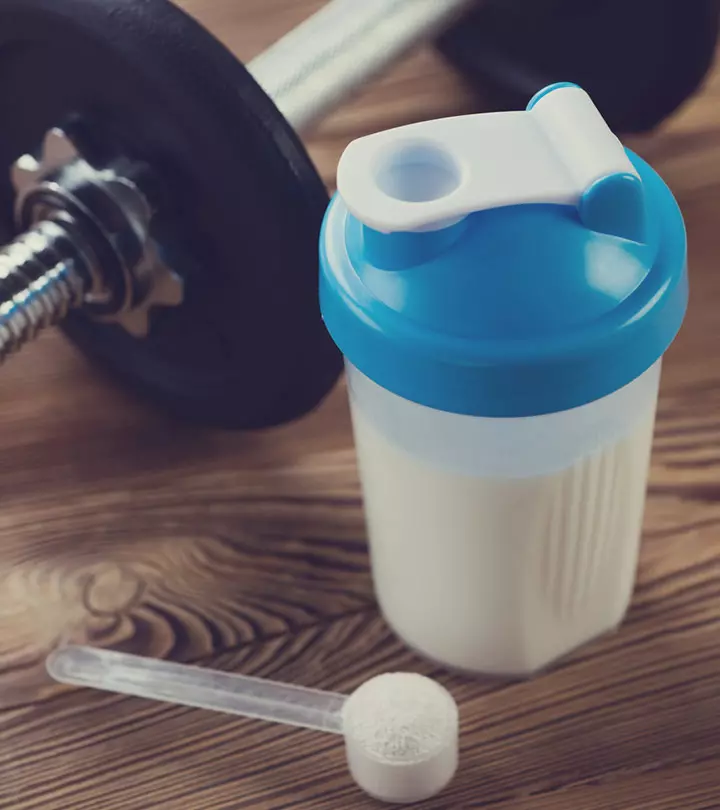
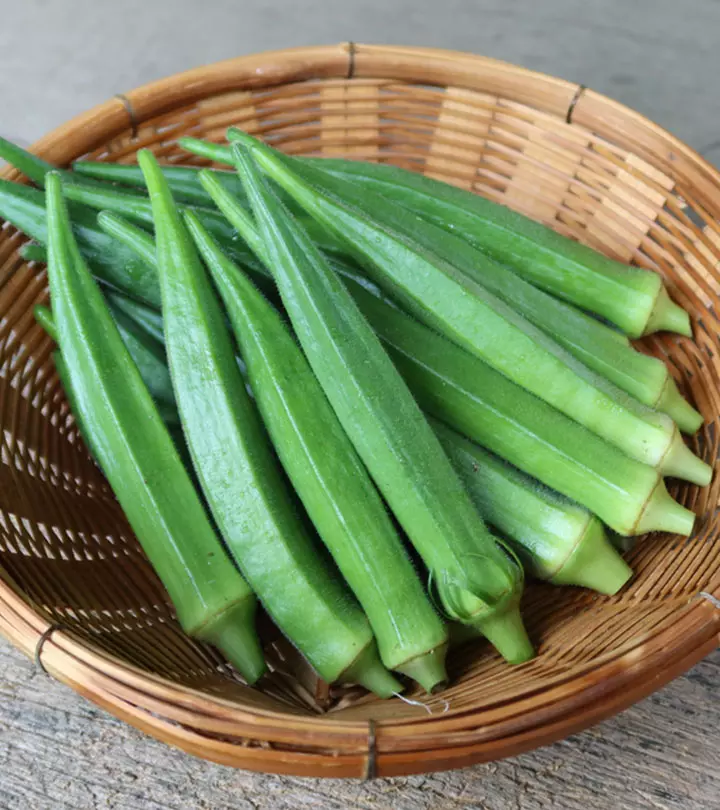
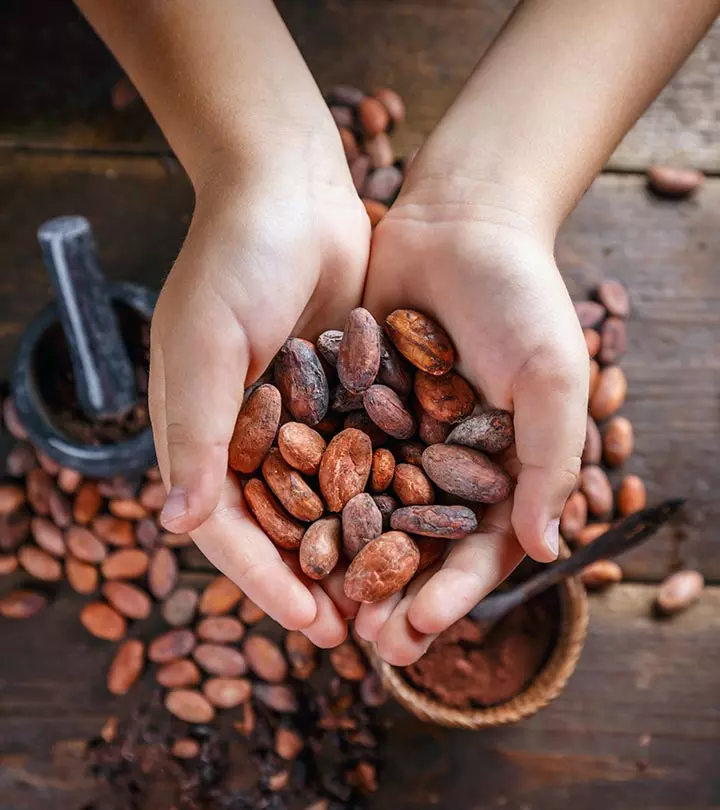
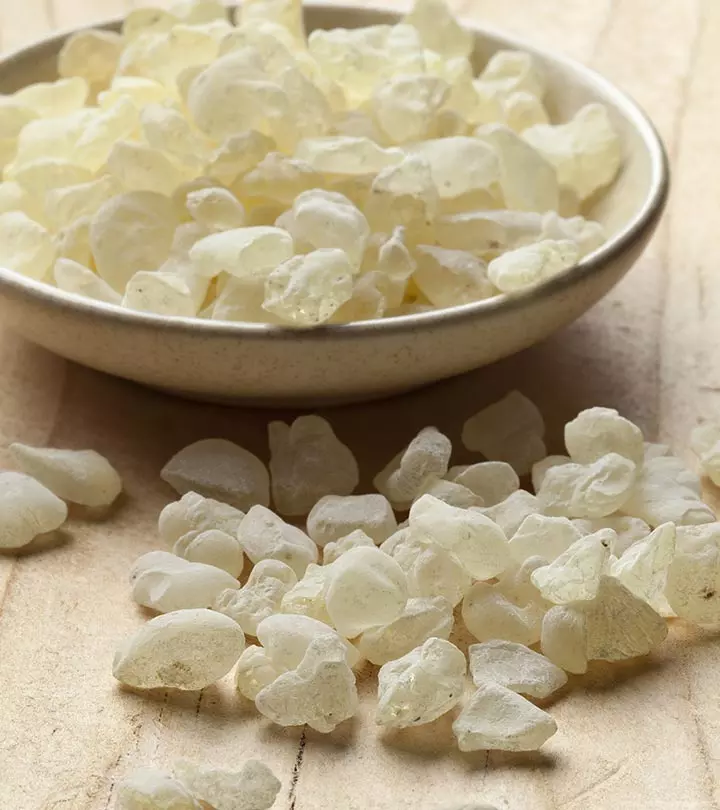
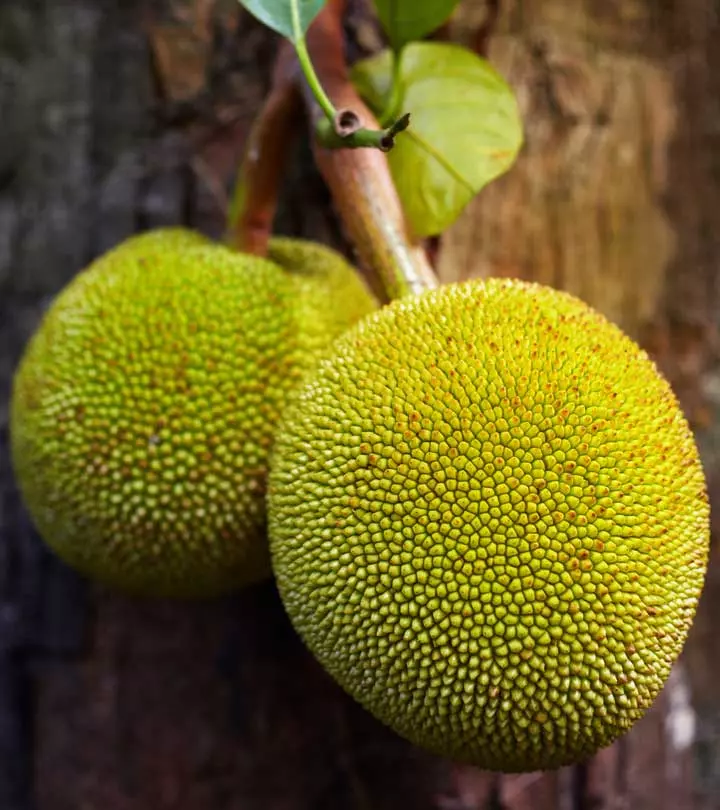
Community Experiences
Join the conversation and become a part of our empowering community! Share your stories, experiences, and insights to connect with other beauty, lifestyle, and health enthusiasts.